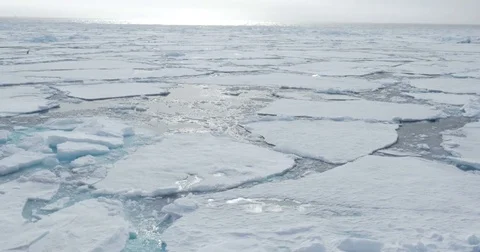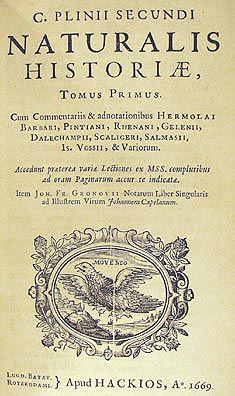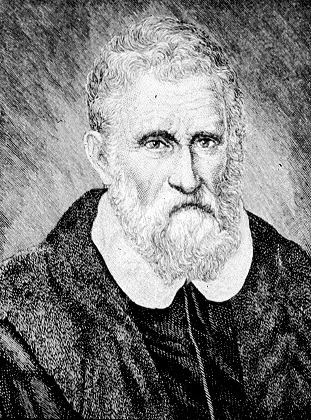 Pytheas of Massallia
Name:
Pytheas of Massallia
Name: Pytheas
Nationality: Greek
The Exploration Years: Unsure; agreed generally to be around 330 BC
Ship name(s): Unknown
Ship type(s): Merchantmen
Famous for: Travelling to Britain and Ireland, the Arctic; longest sea-voyage of the time
Although no written account of his voyage has survived, and various commentators argue about the actual dates, we have to choose one so I’m going with that accepted by Wikipedia, based on the writings of Henry Fanshawe Tozer (1829-1916) at between 325 and 330 BC. Massailla is the old Greek name for the French port which is today known as Marseilles, and from here Pytheas is said to have travelled to Spain and Portugal, and thence across to Britain and Ireland, becoming perhaps the first one to use the word “Britain” for the island country. His impressions of the British seem to indicate that he found the land cold and wet (
quelle surprise!) which to a native of France would be quite a shock, that the people lived in thatched cottages and were ruled by many kings - another odd thing to a democratic Greek - but were at heart a simple people who lived in peace with each other. When they did war, he says, they rode in chariots just like his own people.
According to Strabo (64 BC - 24 AD), a Greek geographer who didn’t like our Pytheas much and thought he was a liar, Pytheas explored the whole of northern Europe “to the ends of the earth”. At this point in time, of course, the ends of the earth were however far the bravest or most adventurous could sail, and countries that lay beyond this limit, such as Africa or Australia or America, were not known to exist at all. Although Pytheas’s account mentions
Thule, the fact that he recounts the sun never set at midsummer seems to indicate that he had actually travelled as far as the Arctic Circle. Quoted from Geminus of Rhodes’
On the Ocean: the Barbarians showed us the place where the sun goes to rest. For it was the case that in these parts the nights were very short, in some places two, in others three hours long, so that the sun rose again a short time after it had set.[/i]
He also mentioned “the frozen ocean”, drift ice he encountered which would have been completely new and probably frightening to a Greek, or any other sailor, as something they had never encountered and could barely understand. Strabo again:
Pytheas also spoke of the waters around Thule and of those places where land properly speaking no longer exists, nor sea nor air, but a mixture of these things, like a "marine lung", in which it was said that earth and water and all things are in suspension as if this something was a link between all these elements, on which one can neither walk nor sail.

There seems, from this account at least, to be an idea that neither he nor the explorer he was commenting upon (and trying to discredit) had any idea at all what ice was, or if they had, that they had never come across it floating in the sea. Perhaps they may have witnessed lakes freezing over in the winter, perhaps not. But free-floating chunks of ice in the sea was a completely new experience for them, and if nothing else, would serve to confirm that Pytheas had indeed travelled “beyond the known world” and seen
terra incognita. He also discovered the Baltic Sea, according to Pliny the Elder (AD 23-79) in his
Natural History (AD 77)
Pytheas said that the Gutones, a people of Germany, inhabited the shores of an estuary of the Ocean called Mentonomon, their territory extending a distance of six thousand stadia; that, at one day's sail from this territory, is the Isle of Abalus, upon the shores of which, amber is thrown up by the waves in spring, it being an excretion of the sea in a concrete form; as, also, that the inhabitants use this amber by way of fuel, and sell it to their neighbours, the Teutones.
This is, of course, as we should expect by now, disputed by Strabo, who didn’t seem to even think the Baltic existed. Pytheas also (no doubt to poor old Strabo’s intense annoyance) figured out that the moon was controlling the tides. In another attempt to discredit him - not sure what exactly he had against the guy - and in fact invalidate his whole voyage, Strabo pointed out that Pytheas was “a poor man” and could not have afforded to finance the expedition. Two counter-arguments given to this, let’s be honest, fit of pique, are that a) the government paid for him to undertake the voyage in order to better understand the lands which were at that time unknown, or b) good old merchants, always in the market for a new trade route, stumped up the cash. Either explanation certainly seems acceptable, but no doubt Strabo would continue to fume even if these reasons were given to him.
 Himilco
Name:
Himilco
Name: Himilco
Nationality: Carthaginian
The Exploration Years: Unknown, but sometime between 500/600 BC
Ship name(s): Unknown
Ship type(s): Unknown
Famous for: Being the first explorer from the Mediterranean to reach the northwest coast of Europe
A quick mention for Himilco, an explorer from Carthage of whom very little is known, and of whose voyages no record survives. He is said to have sailed from the Iberian peninsula towards Britain and Ireland, France and Portugal.
Skylax
Name: Skylax of Caryanda
Nationality: Greek
The Exploration Years: Unknown, but sometime around 590 BC
Ship name(s): Unknown
Ship type(s): Unknown
Famous for: First Greek explorer to reach India

Setting sail from the city of Gandhara (approximately between east Afghanistan and northwest Pakistan), Skylax went down the Indus River, around the Arabian peninsula and into Suez. Not merely an explorer, Skylax was commissioned by the Persian king Darius I to scout out the route to India in order that his armies could later conquer them. And they did, adding India to the Persian Empire’s possessions. Skylax brought back some pretty fantastic traveller’s tales, including accounts of one-eyed beings, cave-dwelling troglodytes (though that was probably just some early Nickelback fans) and even people who could only have one child. He brought back word of the eastern folk (the Indians) to people who had never heard of them before, and even gave the country its name, taken from the Indus River he followed.
 Nearchus
Name:
Nearchus
Name: Nearchus
Nationality: Cretan
The Exploration Years: 326-324 BC
Ship name(s): Unknown
Ship type(s): Unknown
Famous for: Voyage down the Indus River through the Persian Gulf and to the mouth of the Tigris River.
After he had assisted Alexander the Great in defeating the Persian Navy, Nearchus was made a navarch, or admiral of the fleet, and proceeded down the Indus river on a military expedition, capturing towns along the way. Unfortunately the Greeks were unused to such huge rivers as the Jhelum and where it merged with the Chenab they ended up in dangerous whirlpools which in fact wrecked several of their boats. The barges were all right, being of deep draught, but the long ships, much lower in the water, had a hard time navigating the vortices. He also noted and reported back on how rice, cotton and sugar cane were planted and harvested by the Indians. Delayed by monsoon rains and high winds, his fleet had to anchor at the mouth of the Indus and Arabius (now Hub, in Pakistan) Rivers to wait out the bad weather, building a stone fort and subsisting on briny water and fish caught from the river.
They were stuck here for twenty-four days, so must have been relieved when on arriving at Morontobara, they found food stocks had been laid in by one of Alexander’s generals, who had already captured the place. Rather disturbingly though, when they reached Balochistan (a desert area in Pakistan) the report says they “destroyed the native population”. Wow. Later they ransacked the city of Chah-Bahar, Iran’s southernmost city on the Gulf of Oman. No peaceful voyage of exploration, then! Well, I guess what do you expect from Alexander the Great? Hugs and kisses and promises of mutual benefit?

Arrian of Nicomedia describes the beginning of the voyage/campaign in his
Anabasis of Alexander, written around the second century BC:
When everything had been made ready, the army began at dawn to embark on the ships, while Alexander made sacrifice to the gods as was his wont, and to the river Hydaspes as the soothsayers instructed him. Then, himself going aboard, he poured from the ship’s bow a libation from a golden bowl into the river, calling by name upon the Acesines along with the Hydaspes . . . and upon the Indus into which these flow. Then he poured a libation to Heracles, his own ancestor, and to Ammon, and to the customary gods, and gave order for the bugle to sound departure. Never was there a sound like that of the fleet rowing all together, with the coxswains crying the strokes and the oarsmen chanting as they struck the swirling water in unison. . . . The horses caused amazement in the natives who beheld them aboard the transports (for no horses had ever been seen on ships in India); so that the natives who had been present at the embarcation followed a long way, while those whom the shouts of the rowers and the beat of the oars attracted, came running down to the riverbank and followed along, singing their native strains.
Nearchus was the first Greek to see - I’m not sure if you can say discover, but certainly bring back intelligence of - Bahrain, though he called it Tylos, and it became very Greekified, the inhabitants even deciding to worship Zeus and holding Olympic-style athletic games. I do find it odd, even unbelievable though that Alexander knew nothing of tides, and while sheltering in a side channel of the Indus when the stormy monsoon forced them to delay, he was apparently amazed when his ships were beached. Arrian again:
they anchored; whereupon there ensued the usual event in the Great Sea, the ebbing of the tide, with the result that the entire fleet was left stranded. Now this was something of which Alexander’s company had no previous knowledge, so that it caused them great bewilderment. But they were yet more surprised when after the normal interval the sea advanced again and the ships were floated. As the tide rushed in all at once, those of the ships that lay keeled over on harder bottom were knocked together or hurled against the land and staved in. These Alexander repaired as best he could.
Nearchus sighted whales on his journey and was amazed to see them blowing water spouts from their heads, something no sailor of his knowledge had ever seen before. Unlike later mariners though, who hunted these massive denizens of the deep, Nearchus would have considered them sea monsters and stayed well away from them. Their size alone, surely, would have been sufficient warning to keep his distance. Oh wait, no he didn’t. According to Arrian he had his ships row towards them, as if to ram them, all the men shouting (I don’t know why and it doesn’t make it clear, but I guess we can assume they were blocking the fleet’s progress forward) and the whales got spooked and dove underwater, leaving the path clear for the ships. Hey, at least they didn’t kill them, though they must have lost their fear of them, having, technically I guess at least, defeated them in battle, as they later came up close enough to one to measure it.
They came to an island which was said to be haunted by a mermaid who caused anyone who came too near to vanish. One of the ships, getting too close to the island, did vanish (though in all likelihood it just foundered and the men drowned) and everyone feared the legend was true, until Nearchus himself set foot on the island and failed to disappear. When Alexander’s men went in search of Nearchus later, at Hormuz, the mariners were so changed in appearance, longer hair, grimy clothes etc that the party rode right by them, and it was only Nearchus’s realisation that these men must have been sent to find them that they avoided missing meeting up with the king altogether.
While there was of course plenty of exploration in the centuries before Christ, and we will be looking into this more deeply, up to now we have mostly concentrated on western exploration, and in particular Greek or Greek-based. I’m going to wrap this up for now as we head across the ocean to the east, but before I do there is one more important western explorer who needs to be written about, due mostly to his, I suppose in simple terms sheer bravery in being the one who typified that trite old slogan businesses and inspirational cards use now to promote courage and thinking out of the box:
Man cannot discover new oceans unless he has the courage to lose sight of the shore.
In his case, quite literally.
Hippalos
Name: Hippalos
Nationality: Greek
The Exploration Years: Around AD 20
Ship name(s): Unknown
Ship type(s): Unknown
Famous for: Discovering a direct sea route to India
It might seem a simple thing today, but back then the open sea was an unknown quantity, a thing to be feared by sailors who, again literally, feared to lose sight of the coast, as this was often their only way of knowing where they were. The route to India had already been plied, of course, as already related, by Alexander and Nearchus, but it was gained by sailing down rivers and hugging coastlines, I suppose similar to a man inching along a wall to get somewhere rather than walk out in the street. Coastlines were familiar and could be used to ascertain positions, and of course in the event of a storm blowing up they were nearby and could be headed to for shelter. Get caught by a squall or a tempest out on the open sea and there was nowhere to run, and little chance of survival.
Hippalos discovered the direct route to India from the Gulf of Aden by using the monsoon winds to guide him, winds that later bore his name. In planning out, and executing successfully a direct ocean voyage to the sub-continent, he cut the travel time down, since as we all know the shortest distance between two points is a straight line, and therefore being the first to have the courage to abandon the practice of coastline-hugging and head out into the open sea, he assured his place in history.
















 Hybrid Mode
Hybrid Mode